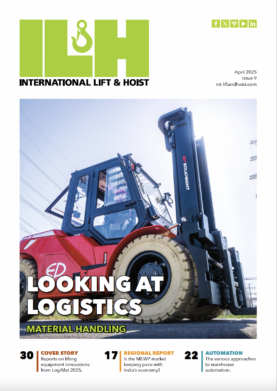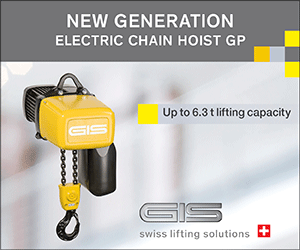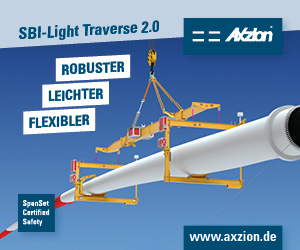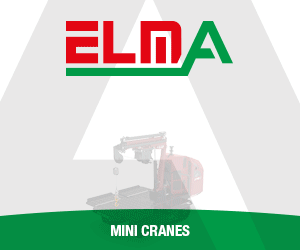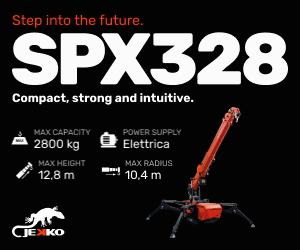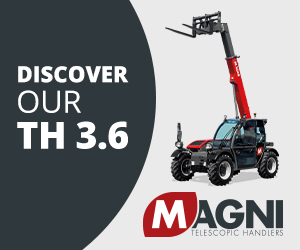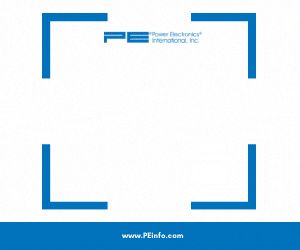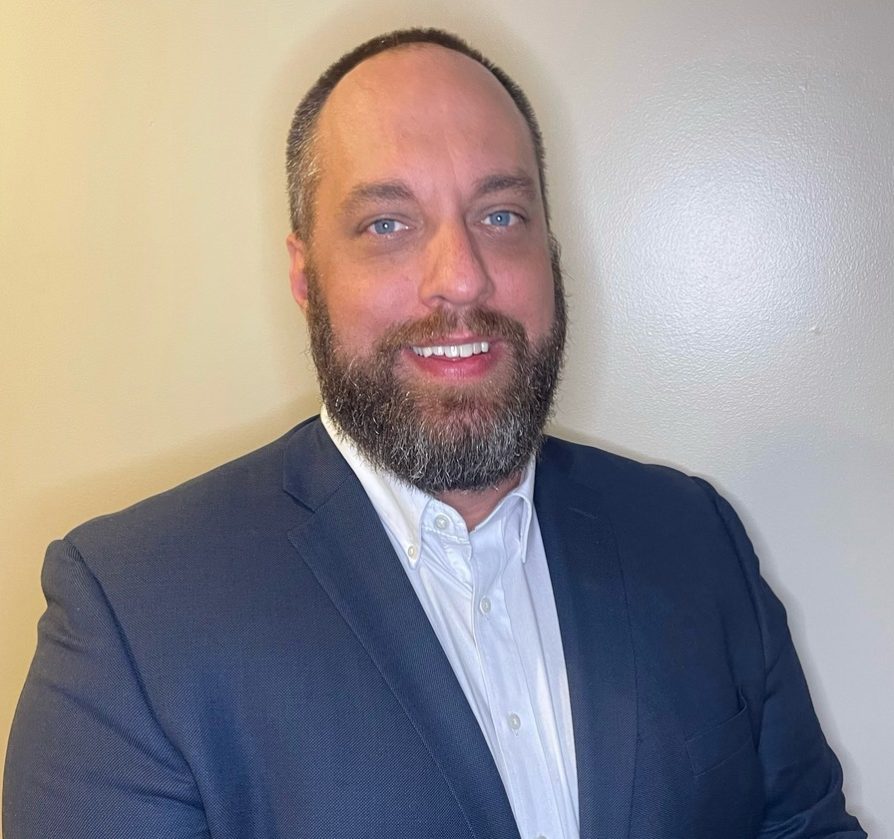)
Forward thinking
The electric overhead travelling crane industry, like the steel sector, must clean up its act when it comes to sustainability, says Joel Cox.
Component suppliers can offer a unique and valuable perspective.
They get to work in the many different sectors where the products they sell or services they provide are applied. In the morning, they can be in a steel mill and in the afternoon, down a mine. The following day, a sky-scraping wind turbine must be climbed, before docking at a port where a completely different, if equally heavy-duty, application awaits. New challenges – and opportunities – are constant.
A three-decade veteran of the electric overhead travelling (EOT) crane and hoist market, and now a representative in the wind energy industry for a company that manufactures industrial (rotor, yaw, and pitch) brakes, I’ve seen it all throughout my career. It’s afforded me a great chance to immerse myself in some of the world’s fastest-paced industries and meet fabulous people – from welders to CEOs and everyone in between – all of whom, like components, have been vital cogs in larger machines.
This variety has also put me in a good position to compare geographies and industries. I see one country forging ahead, and another trending in the opposite direction. I see one market committing to positive change, and another abandoning policy that would have sent it heading the same way. Within each country or sector, there are pioneers and those that follow, or others that don’t bother leaving their seats at all. I see the positive, reactive, unattractive, and inactive.
Sermon says
I was asked to give a sermon some years ago and I based my subject on the varied experiences described above; I titled my talk, ‘Forward or Froward?’
Knowing that some in the congregation might even have thought that the second word was a typo, I started by explaining what each one meant.
“Forward,” I said, “is in the direction that you’re facing or going. It also means, you’re towards the front. It’s kind of a positive thing; what you want to be.”
“Froward,” I added, “is not the opposite of that, but it does mean difficult to deal with or contrary. It’s kind of a negative thing; and not what you want to be.”
I continued: “Which word would you want to be used to describe how you live?”
You can imagine that, unanimously, the group wanted to be the first word I described. Nobody aspires to be difficult, after all.
It’s fascinating then that we can’t seem to align ourselves in a positive way of thinking when it comes to important matters, such as the environment and sustainability. At the best companies I engage with, there are dedicated individuals – teams, even – that focus specifically on preparing their businesses for a greener today, and tomorrow. They’re forward thinkers. Even a micro business can strive to become paperless and commit to low carbon endeavours. There are small percentage gains that can be made every day if you look around. Yet, there are entire sectors lagging behind and, remorsefully, overhead lifting and steel are two standout examples.
I wouldn’t go as far as to say that either industry is froward, because they’re clearly brilliant at what they do, and have retained some of the best engineering expertise on the planet. Both have presented me with friends and colleagues for life. I gave a decade of my career just to the high-level modernisation of some of the largest, heaviest duty overhead cranes in North America, many of them in metals facilities. They’re both industries that I would push young people towards for fulfilling, challenging careers.
However, when you look at the extent to which stakeholders and purchasing decision makers in these markets think about environmental longevity, they would certainly score worse than, say, agriculture, general manufacturing, construction, and healthcare, which are consistently creating and retaining the most green-skilled workers. I read another article recently that also pointed to the energy and mining sectors, which are also growing at a fast rate. I know that many waterside terminals, meanwhile, show a bias towards biodegradable fluid, and I do wonder why wind energy hasn’t made such a commitment.
Again, working in components affords one a good perspective, with many new products and systems being made available specifically with sustainability in mind. In other words, we can literally measure the forward (or froward) thinking abilities of an industry by the barometer of the parts they decide to incorporate into their wider machines and operations.
In simple terms, do they select a slightly more expensive product that’ll improve operations, certainly environmentally, or do they opt for the cheaper, less green option?
Take a brake
Forgive me for delving deeper into my current component world of brakes, but friction keeps the world moving, you know, albeit in a controlled way. Controlling friction with products that avoid hazardous materials is an art form that dovetails with cutting downtime and ensuring that products span routine maintenance intervals.
Take, for example, a steel mill, and my role in a previous life as a salesperson required to explain the benefits (centred on longevity) of caliper disc brakes; their use is also suited to other heavy-duty applications, such as those found in ports and mines. These modern brakes cover a huge range of torques. Disc caliper brakes offer extremely fast closing times and variability and are the product of choice in industries around the world due to versatility, ease of application, and user-friendly handling. Compared to the old design of drum brakes, they have higher heat dissipation, faster speeds, and faster cooling. Caliper disc brakes also have the capability of using sintered linings instead of older organic linings. So, it was always an easy sell, you’d think. But, no, traditional drum brakes were often the product of choice. And there’s the barometer I’m talking about.
I challenge such industries to think (forwardly) outside of the traditional box. Would a brand new Chevrolet Corvette Stingray mid-engine sports car use drum or caliper brakes?
Trash talk
In conclusion, it’s evident that there are some marketplaces that are ahead of others when it comes to making long-term, sustainability-based decisions. How they choose components, fluids and materials is just one way we can prove what their mindset might be.
Even politically and culturally, we see great disparity; we must change this. It cannot be right that we can point to Europe as being more environmentally focussed than North America, or construction and civil engineering forging ahead where EOT cranes and steel are lagging behind somewhat.
Putting a green recycling bin outside your facility doesn’t mean you’re ticking the box, especially if it’s empty. That’s trash talk. Proper sustainability is a way of life. It’s a constant commitment to continuous improvement, measurable in incremental change.
What decisions will you make today that will help tomorrow?



